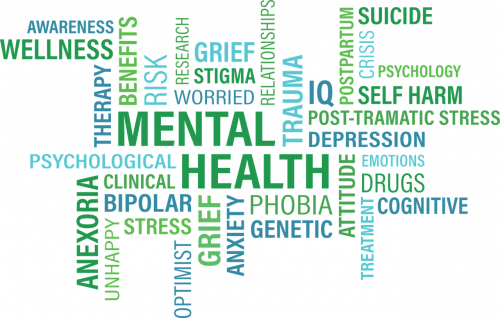One of the biggest mistakes that we do when trying to help family members with mental health is assuming we know how to help. We quickly conclude things because we rely on the idea of familial connection. We believe that our loved ones’ feelings, thoughts, and actions are only a little effect on their unstable life. With that overly confident way of thinking, we act immediately and we confront them, as if we already have the answers to their struggle. But that mentality only makes things worse because sometimes, we utter words we know we shouldn’t have.

Source: pexels.com
“It’s All In Your Head”
Most of us consider that happiness is a choice. However, a mental illness like depression most definitely is not. Sometimes, we fail to realize that the condition is due to the things that are out of our loved ones’ control. These include traumatic experiences, environmental factors, brain chemical imbalances, as well as genetics. So there is no point in condemning them for feeling depressed or experiencing a mental breakdown. When we try and comfort someone with depression, we do not convince them to forget and ignore all the things they are mentally and emotionally experiencing. Because even if we might not see it, the effects of those illnesses are just as real as physical pain. We have to realize that depression is not something anyone can shrug off any time they want. So we shouldn’t think that our loved ones are overreacting and that they’re just making a big deal about it.

Source: pexels.com
“You Seem To Look Fine”
Sometimes, we tend to help our family in a different way than what we usually do. That explains why we often try to stay positive as much as possible so that it can impact our loved ones’ overall well-being. With that, we utter words like “you look fine to me” to assume positive feedback. We think it is a compliment. However, for people who are experiencing a mental illness, it represents a different meaning. It makes them believe that we are invalidating their feelings and struggle. As a result, our loved ones become resentful towards us. They will think that it was a bad idea to confide their feelings to such insensitive individuals like us. In some unfortunate instances, those words can make them take away their trust towards us.
“You Are Not Trying Hard Enough To Help Yourself”
For some reason, family members with depression know that their condition is not something they can easily control. Most of the time, they are struggling with it without even noticing it. And since we assume we know how to take care of our family, we confront them. We give advice and make sure that they push themselves to positivity. But sometimes, we get upset when all our efforts seem not to work. With that, we express our frustrations to our loved ones because we think helping them is useless without their cooperation. We feel they are not striving hard enough. But those words can deeply hurt them instead of encouraging them. They make our loved ones feel guilty of having a mental illness even though it is never their fault.

Source: pexels.com
“There Is No Reason To Feel Depressed”
Depression is different from the occasional sadness and loneliness we feel. It is not comparable to having a normal emotional and mental response from the ups and downs of life. There is no specific cause for it. So when we tell our family that they shouldn’t be depressed because there are no reasons to be, we come off as unsympathetic, insensitive, and irritating individuals. Even if our intention is only to remind our loved ones about the great things they have in their lives, it will still turn out to be an unacceptable approach. That is because those words can make them believe that they are ungrateful. That emotional trigger will only worsen their condition and eventually make them not want to help themselves.

Source: pexels.com
“I Know How You Feel”
Understandably, saying these words to our loved ones means to convey understanding and sympathy. However, for those family members with depression, it feels offensive. If we have suffered the same mental health conditions that our loved ones are now experiencing, we can say these words. But if not, there is no better way to say that we truly know everything about their emotional and mental pain. To help our family, we must first understand that we don’t know anything about their pain. No matter how hard we imagine we can relate to their struggles, we can’t. That is the first step to recognizing the effort we need to put.
It is better to understand that sometimes, even a well-intentioned remark can get misinterpreted. Even if we think we deliver our words correctly, it can still be misconceived as something ignorant and hurtful. Thus, we must try our best to be careful in transferring our thoughts into words.
















